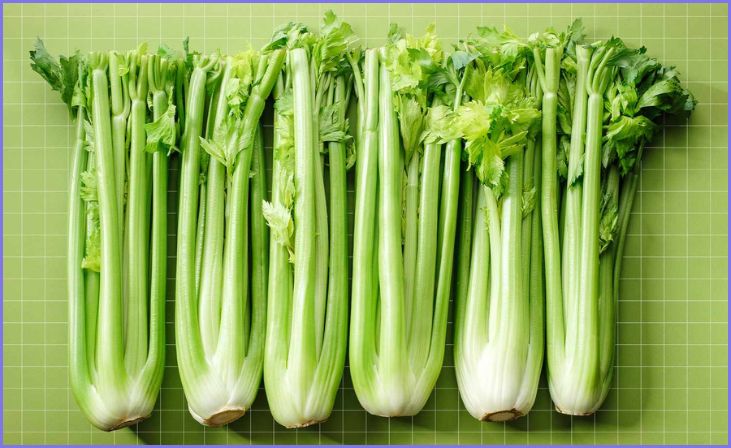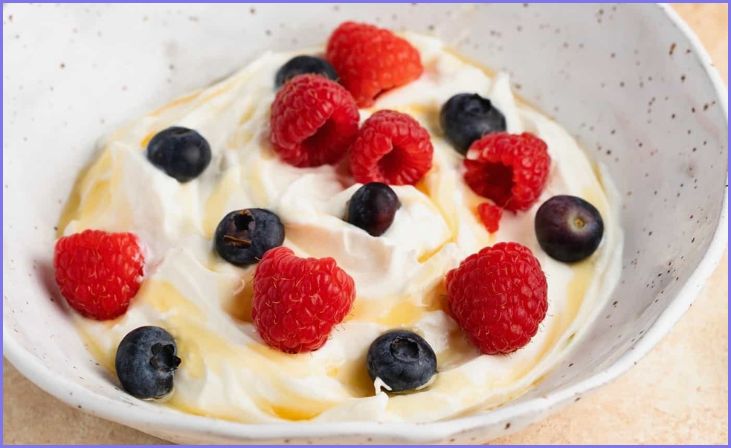“In the pursuit of a healthier lifestyle, discovering the right foods can make all the difference. This blog explores the realm of low-calorie foods that not only support weight reduction but also offer nourishment without the guilt. Delve into a palette of flavors, textures, and nutrients, as we unveil a curated list of culinary delights that contribute to your wellness journey. From crisp veggies to lean proteins, these low-calorie wonders are your allies in achieving your weight reduction goals while savoring every bite.
Let’s redefine your approach to food, embracing a harmonious blend of taste and nutrition that fosters a healthier, happier you. Join us on this culinary adventure, where mindful eating meets the joy of nourishing your body, proving that wellness can be both delicious and guilt-free.”
Low-Calorie Foods for Weight Reduction
Embark on a journey to weight reduction without compromising on flavor. Explore the world of low-calorie foods that promise nourishment without the guilt, making your wellness journey a delightful experience.
Celery

Celery, scientifically known as Apium graveolens, is a green vegetable that belongs to the Apiaceae family. Renowned for its distinctive crunchy texture and mild, refreshing flavor, celery is a nutritional powerhouse with a minimal calorie count. One of its standout features is its high water content, making it an excellent hydrating snack. Beyond its hydrating properties, celery is rich in essential vitamins and minerals, including vitamin K, vitamin C, potassium, and folate.
Additionally, celery contains antioxidants and fiber, contributing to digestive health. Its low-calorie nature makes it a go-to choice for those aiming to manage weight without sacrificing nutrition. Embraced as a versatile ingredient in salads, soups, and snacks, celery stands tall not just for its height but also for its nutritional value in promoting a balanced and wholesome diet.
Also Read- 15 Foods That Should Never Be Placed in the Refrigerator
Strawberries
Strawberries, scientifically known as Fragaria x ananassa, are a vibrant and succulent fruit celebrated for their sweet taste and appealing red hue. Beyond their delightful flavor, strawberries offer a guilt-free indulgence for those conscious of calorie intake. With approximately 32 calories per cup, these berries pack a nutritional punch. They are rich in vitamin C, manganese, and antioxidants, contributing to overall health and well-being. The high fiber content in strawberries promotes satiety, making them a satisfying yet low-calorie snack.
Whether enjoyed fresh, added to salads, or blended into smoothies, strawberries bring a burst of natural sweetness without the worry of excess calories. Incorporating these nutrient-dense berries into your diet not only satisfies sweet cravings but also supports a balanced and low-calorie approach to wholesome eating.
Baby Carrots
Baby carrots, often adored for their convenience and vibrant appearance, are not only a visually appealing snack but also a nutritional powerhouse. These bite-sized delights, crafted from full-sized carrots, offer a host of health benefits in a small package. Low in calories and high in fiber, baby carrots make a smart choice for those seeking weight-conscious options. Their orange hue signifies a rich source of beta-carotene, a precursor to vitamin A, essential for eye health and immune function.
Additionally, these miniature carrots provide a satisfying crunch, making them a perfect guilt-free snack. Whether dipped in hummus, added to salads, or enjoyed on their own, baby carrots offer a tasty and nutritious way to curb cravings and support your overall well-being. Incorporate these petite veggies into your diet for a delightful and health-conscious munching experience.
Greek Yogurt

Renowned for its thick texture and rich taste, Greek yogurt stands out as a versatile and nutritious dairy delight. What sets it apart is the straining process that removes excess whey, leaving behind a creamy and protein-packed product. An excellent source of high-quality protein, Greek yogurt supports muscle development and helps keep you feeling full longer. Its probiotic content promotes a healthy gut, contributing to digestive well-being.
Additionally, Greek yogurt offers a calcium boost for strong bones and teeth. With various flavors and toppings, it can be enjoyed as a standalone snack or incorporated into both sweet and savory dishes. Whether blended into smoothies, drizzled with honey, or used as a tangy substitute in recipes, Greek yogurt proves to be a delectable and nutritious addition to your culinary repertoire.
Hard-Boiled Eggs
Hard-boiled eggs are a convenient and nutrient-packed snack that delivers a satisfying dose of protein. Easy to prepare and even easier to transport, they make for a perfect on-the-go option for busy individuals. Packed with essential amino acids, hard-boiled eggs support muscle repair and growth. The egg whites offer a low-calorie source of protein, while the yolks provide essential vitamins and minerals, including vitamin B12 and choline. These nutrients contribute to brain function and overall well-being.
Hard-boiled eggs also contain antioxidants like lutein and zeaxanthin, promoting eye health. Versatile and delicious, they can be enjoyed solo with a sprinkle of salt and pepper, sliced on salads, or transformed into flavorful deviled eggs. Adding hard-boiled eggs to your diet is a simple and tasty way to boost protein intake and support your nutritional goals.
Broccoli
Broccoli, a member of the cruciferous vegetable family, stands out as a nutritional powerhouse. Packed with vitamins, minerals, and antioxidants, this green gem is a versatile addition to a healthy diet. Rich in vitamin C, broccoli supports immune function and skin health. It’s also a good source of fiber, aiding digestion and promoting a feeling of fullness. The presence of sulforaphane, a potent antioxidant in broccoli, has been linked to various health benefits, including reducing inflammation and supporting heart health.
Additionally, broccoli contains folate, which is crucial for cell division and DNA synthesis. Whether steamed, roasted, or added to salads and stir-fries, incorporating broccoli into your meals is an excellent way to enhance your overall nutritional intake and contribute to your well-being.
Air-popped Popcorn

Air-popped popcorn is a delightful and guilt-free snack that combines crunch with low-calorie goodness. Unlike its butter-drenched counterpart, air-popped popcorn is prepared without added oils or fats, making it a light and wholesome option. Rich in fiber, it promotes a feeling of fullness, aiding in satiety and potentially supporting weight management.
Additionally, popcorn is a whole grain, providing essential nutrients like vitamins, minerals, and antioxidants. It’s a versatile canvas for flavor experimentation—season with herbs, nutritional yeast, or a sprinkle of cinnamon for a tasty twist. When prepared mindfully, air-popped popcorn serves as a satisfying and health-conscious snack, perfect for movie nights or anytime you crave a crunchy treat without compromising your calorie goals.
For More- World’s Unhealthiest Canned Foods
Conclusion
“As we conclude our exploration of low-calorie foods for weight reduction, it’s evident that nourishing your body need not be a compromise on taste. Embrace a diverse array of nutrient-rich options that cater to your palate while supporting your wellness journey. By incorporating these low-calorie wonders into your diet, you’re not just managing your weight but actively contributing to a healthier, happier you. Remember, it’s the small, mindful choices that pave the way for long-term well-being. So, revel in the flavors, experiment with recipes, and relish the journey towards a balanced and fulfilling lifestyle.”
FAQs
Absolutely! Incorporating a variety of these foods into your daily meals provides a well-rounded approach to nutrition.
Yes, there are numerous recipes available to make these low-calorie foods delicious and satisfying. Experiment with seasonings, cooking methods, and combinations to suit your taste.
Weight loss varies for each individual. Consistency in a balanced diet, coupled with regular exercise, is key to achieving and maintaining a healthy weight.







